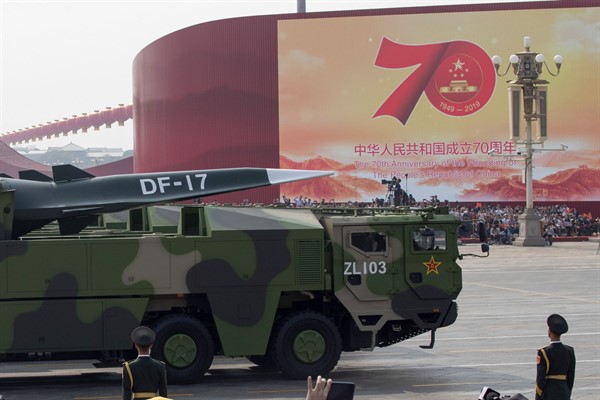The recent report in the Financial Times that China tested a nuclear-capable hypersonic weapon has pundits, members of Congress, and even Chairman of the Joint Chiefs of Staff Gen. Mark Milley worried about a “Sputnik moment.” Given the failure of the United States’ own test of a hypersonic missile last week, it seems to many that a hypersonic missile gap has opened, harming U.S. security.
But even if China’s test means it has perfected a new way to deliver a nuclear warhead—a big if—it’s no cause for alarm. A new nuclear delivery system will not meaningfully shift the balance of military power with the United States, nor would it enable a Chinese attack on U.S. partners and allies in East Asia. China already had an assured ability to conduct a nuclear strike on the United States. This test just makes it harder to pretend otherwise.
A “Sputnik moment” is actually something U.S. leaders should labor to avoid—not because it would represent a new national security threat, but because it implies undue panic. As was the case in 1957, when the Soviet Union’s launch of the first satellite into space generated fears of a “missile gap” that later turned out to be unfounded, China’s recent test is no indication that the U.S. has fallen behind in a realm vital to American security. The bigger danger is overreacting with accelerated competition in hypersonic technology, space weapons or other exotic new ways to burn money.

